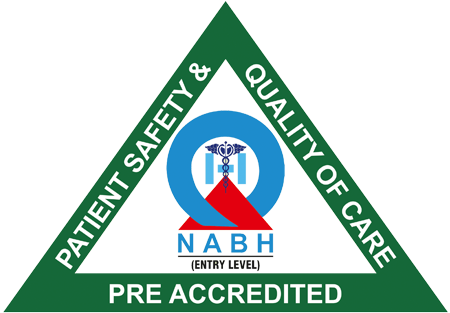Pregnancy is an extraordinary time in a woman’s life. Your body is doing the amazing work of growing a tiny human, but it also brings along some less-than-amazing changes, especially in your digestive system. If you’re dealing with heartburn, constipation, or nausea during pregnancy, you’re not alone.
These issues are common, and they happen because your body undergoes big changes to support your baby. Let’s explore these changes and how to tackle some of the most frequent GI issues you might face, step by step.
Why Do Digestive Problems Worsen During Pregnancy?
To understand why your stomach might feel more sensitive or why digestion slows, it’s helpful to know that pregnancy hormones love to shake things up. One key hormone, called progesterone, rises significantly during pregnancy. Progesterone helps relax muscles to make space for your growing baby.
But it also relaxes muscles in your digestive system, like the one controlling the opening between your stomach and oesophagus (leading to acid reflux) or the muscles that push food through your intestines (causing slower digestion and constipation).
On top of that, your growing uterus adds pressure to nearby organs like your stomach and intestines, creating even more discomfort. These changes are normal, but they can leave you feeling queasy, bloated, or uncomfortable after meals.
Common Gastrointestinal Problems During Pregnancy
Now, let’s break down the most common GI problems during pregnancy, what causes them, and tips to manage them safely.
1. Acid Reflux (Heartburn)
Why does acid reflux happen during pregnancy?
Acid reflux feels like a burning sensation in your chest, often after eating. It happens because progesterone relaxes the lower esophageal sphincter (a valve that acts like a gate between your stomach and esophagus). When this valve doesn’t close tightly, stomach acid escapes into the esophagus, causing that unpleasant burning feeling.
Common symptoms:
- A burning or hot feeling in your chest, especially after meals.
- A sour or bitter taste in your mouth.
- Feeling bloated or overly full after eating small portions.
Safe remedies for relief:
- Eat smaller meals throughout the day instead of three big ones.
- Don’t lie down right after eating. Instead, sit up for at least two hours.
- Avoid trigger foods like spicy, fried, or acidic dishes (think citrus fruits, coffee, or tomatoes).
- Prop your head up with an extra pillow while sleeping to prevent acid from flowing up.
- Talk to your doctor about antacids like Tums, which are generally safe for pregnancy.
2. Nausea & Vomiting (Morning Sickness)
What causes it?
Morning sickness, which can happen anytime during the day despite its name, is caused by high levels of hormones, especially HCG (human chorionic gonadotropin) and estrogen. These hormonal surges can make your stomach more sensitive, especially in the first trimester.
When to worry?:
For most women, nausea fades after the first trimester. However, if you’re vomiting frequently and unable to keep anything down, talk to your doctor about Hyperemesis Gravidarum (a severe form of morning sickness).
Safe remedies:
- Keep some dry crackers or plain snacks by your bed, and eat a few before getting up in the morning.
- Sip on ginger tea or munch on ginger candies. Ginger is a natural and safe way to soothe upset stomachs.
- Try taking Vitamin B6 supplements, which may reduce nausea. Talk to your doctor before starting any new supplement.
- Stick to foods that are bland and easy on your stomach, like plain rice, bananas, or toast.
3. Constipation
Why does it happen?
Constipation is one of the most common complaints during pregnancy. Progesterone slows down your digestive system to help absorb more nutrients for your baby, but this also means your stool can become harder to pass. Iron in prenatal vitamins can also contribute to constipation.
How to find relief:
- Eat plenty of fiber-rich foods, like fruits (apples, pears), vegetables (carrots, leafy greens), and whole grains (oats, brown rice).
- Drink at least 8–10 glasses of water every day. Staying hydrated helps soften stools naturally.
- Stay active with light exercise like walking or prenatal yoga. Movement helps your digestive system work better.
- If none of these work, ask your doctor about a stool softener or fiber supplement that’s safe during pregnancy.
Trust Shenoy Hospitals for exceptional maternity care. Schedule your appointment with our specialists now and ensure the best for you and your baby!
4. Bloating & Gas
Why does it happen?
Progesterone slows down digestion, making gas more likely to build up in your intestines. Plus, as your baby grows, your uterus puts extra pressure on your stomach and intestines, trapping gas and making bloating more uncomfortable.
Tips to reduce bloating:
- Eat smaller, more frequent meals to avoid overloading your stomach.
- Cut back on carbonated drinks and gas-producing foods, like beans, broccoli, and cauliflower.
- Chew your food slowly to prevent swallowing extra air, which can add to gas buildup.
- Exercise gently, such as taking short walks after meals to help release trapped gas.
5. Diarrhea
Why does it happen?
While constipation is more common, some women experience diarrhoea during pregnancy. Changes in diet, prenatal vitamins, or heightened sensitivity to certain foods can lead to loose stools.
When to seek help:
If diarrhoea lasts longer than two days or you notice symptoms like dizziness, dry mouth, or dark urine (signs of dehydration), call your doctor.
How to manage diarrhoea?:
- Follow the BRAT diet, which stands for Bananas, Rice, Applesauce, and Toast. These foods are gentle on the stomach and help firm up stools.
- Drink plenty of fluids to replace what you’ve lost. Water, clear broths, or electrolyte drinks are ideal.
6. Haemorrhoids
What are haemorrhoids?
Haemorrhoids are swollen veins around the rectum and anus. They often develop during pregnancy due to constipation and the extra pressure from your growing uterus.
Symptoms:
- Pain or discomfort during bowel movements.
- Swelling near the anus.
- Itching or bleeding.
How to ease the discomfort?:
- Use a sitz bath, which involves soaking your bottom in warm water for 10–15 minutes.
- Eat a high-fiber diet to prevent constipation and reduce straining.
- Apply doctor-approved creams or ointments to soothe the area.
When to See a Doctor?
While most pregnancy-related GI issues are normal, some symptoms warrant a doctor’s attention. Contact your healthcare provider if you experience the following:
- Vomiting blood or noticing blood in your stools.
- Severe dehydration (e.g., you can’t keep fluids down).
- Extreme abdominal pain or cramps.
- Significant weight loss.
Simple Prevention Tips for a Healthier Digestive System
Preventing GI discomfort starts with taking proactive steps that keep your digestion running smoothly. Here’s what you can do day-to-day:
- Eat smaller meals instead of large, heavy ones.
- Drink water throughout the day, especially if you’re eating more fibre.
- Stay physically active with gentle exercises like walking or swimming.
- Avoid stress by trying relaxing activities like prenatal yoga, meditation, or deep breathing.
- Track foods that trigger discomfort and adjust your diet accordingly.
FAQs
1. Is it normal to have excessive gas during pregnancy?
Yes, it’s completely normal due to slower digestion and hormonal changes.
2. What foods should I avoid for better digestion?
Avoid fried, spicy, or overly processed foods. Gas-producing foods like beans and carbonated drinks may also cause discomfort.
3. Can pregnancy hormones cause food intolerances?
Hormonal changes can make you more sensitive to certain foods, but this is usually temporary.
4. Is probiotic yoghurt safe during pregnancy?
Yes, probiotic yoghurt is safe and may help support digestive health.
5. How can I tell if my digestive issue is serious?
Severe symptoms like blood in vomit or stool, dehydration, or sudden weight loss should be reported to your doctor.
Final Thoughts
Dealing with GI issues during pregnancy can be uncomfortable, but it’s a normal part of this life-changing experience. The good news is that these problems are often manageable with small lifestyle tweaks and safe remedies.
If something feels off or unmanageable, trust your instincts and talk to your doctor. Every kick from your baby reminds you that your body is working hard to create new life, so be patient and kind to yourself!
Looking for a trusted maternity care hospital in West Marredpally? Get compassionate, expert care for a smooth and healthy pregnancy. Contact us today!
Share:




